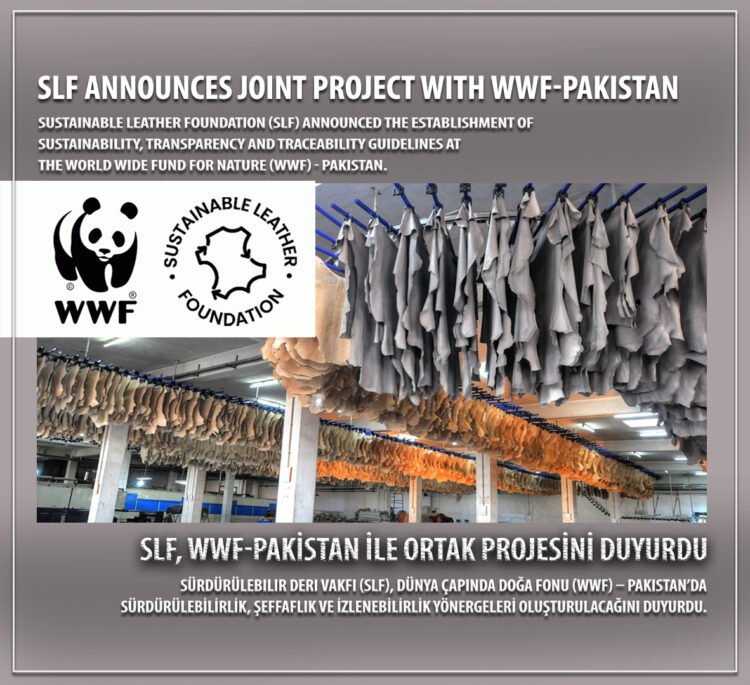Sustainable Leather Foundation (SLF) announced the establishment of Sustainability, Transparency and traceability guidelines at the World Wide Fund for Nature (WWF) – Pakistan.
WWF Pakistan has signed a contract with SLF for “Development of Transparency and Traceability Guidelines for Pakistan Leather Supply Chain” under the European Union funded project “Implementation of International Labor and Environmental Standards in Pakistan SMEs (ILES)”.
The project aims to contribute to improving environmental sustainability and livelihoods in Pakistan by supporting sustainable economic growth and development.
The development of the Transparency and Traceability Guidelines is an important additional work that will enable the leather industry in Pakistan to better understand the need and benefits of achieving a traceable and transparent value chain. By establishing Guidelines for a standardized policy and procedure for traceability in Pakistan, the project will play an important role in ensuring the long-term future sustainability of the industry in the region. With greater involvement of policy makers in government and private stakeholders, a coherent package of support and information can be provided that will ensure increased access to international markets and the ability to meet regulatory requirements. The study is scheduled to be completed by the end of July 2024.
Deborah Taylor, Managing Director of SLF, said: “Given the challenges and uncertainties facing the leather industry, especially future regulations, we were highly motivated to develop these Guidelines for WWF Pakistan. We will look to combine all of SLF’s current best practice work and collaboration with the Traceability Cluster, UNECE and the European Commission DG Env Deforestation Platform to create a set of Guidelines and information that will be practical and applicable for Pakistan.
Adeel Younas, Freshwater Program Manager at WWF Pakistan, added: “Traceability is crucial for identifying and mitigating environmental risks associated with the leather supply chain.
The guidelines will play a crucial role for the private sector to take concrete steps in their supply chains and ensure compliance with upcoming international regulations. It will also support the development of a policy framework to promote supply chain transparency and traceability in Pakistan.”









